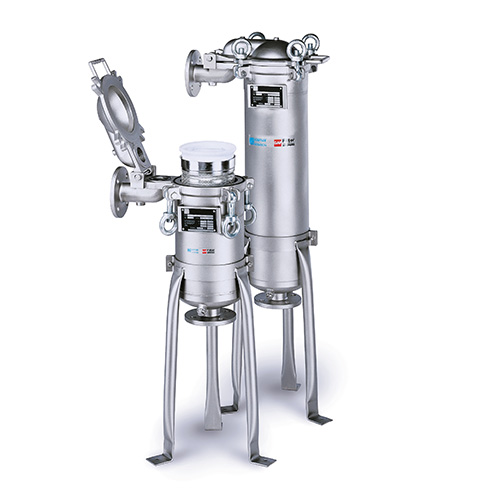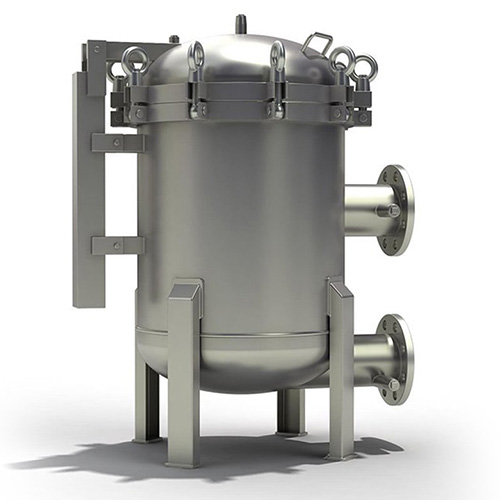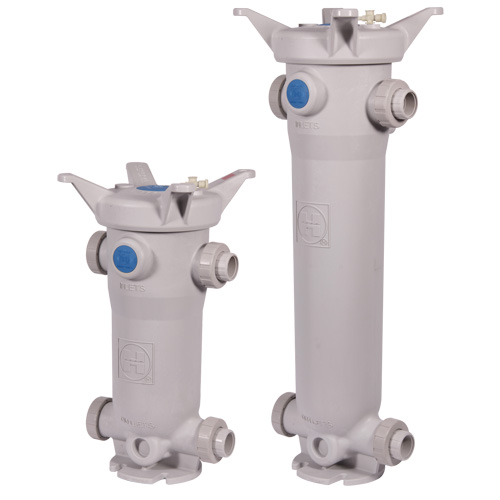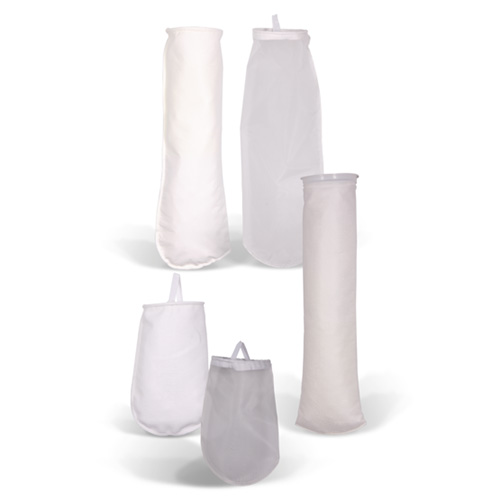Menu
The Bag Filter System - Bag Filters and Filter Bags for Liquid Filtration
Bag Filters & Filter Bags for Reliable Liquid Filtration
A liquid bag filter system comprises a pressure-rated vessel (housing) fitted with a reusable or disposable filter bag supported by a metal basket. Incoming liquid flows into the vessel and through the bag, where solids are captured on or within the media. The design suits applications requiring high flow rates and large dirt-holding capacity.
Monarch Industrial Products offers one of the most extensive ranges of Bag Filters and Filter Bags available in Australia and the Asia Pacific. With over 20 years of experience in industrial liquid filtration, we supply systems that are durable, chemical-resistant, and easy to maintain.
Our bag filter housings are engineered in a wide range of materials including Polypropylene (PP), Glass-Filled Polypropylene (GFPP), PVC, CPVC, and Stainless Steel. Combined with filter bags in multiple micron ratings, these systems provide cost-effective, high-performance filtration for countless industries.
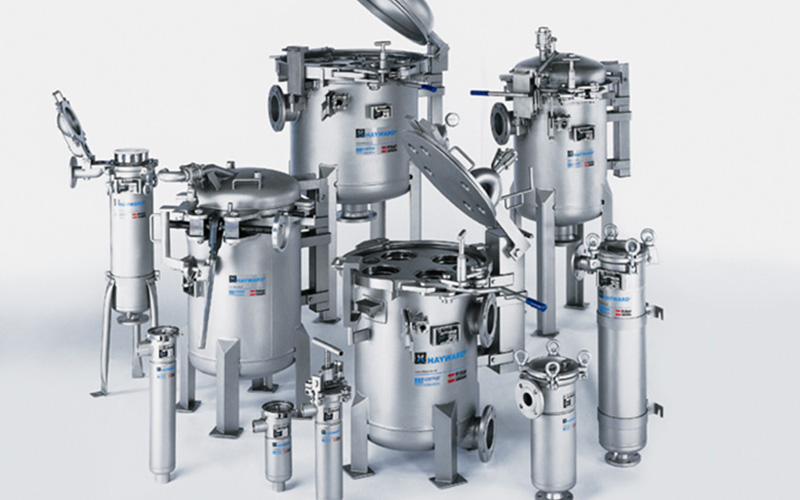
Why Choose Monarch Industrial Products?
- Monarch Bag Filters are backed by a General Engineering Workshop here in Australia.
- Over 25 years’ experience in industrial filtration.
- Our staff have over 25 years’ experience with GAF Filters, the creators of bag filters
- Local stock & support in Brisbane and Asia Pacific.
- Custom fabrication available for special housings and skid systems.
- Trusted supplier to chemical, water treatment, and manufacturing industries.
- End-to-end solutions including housings, filter bags, strainers, and custom elements.
- Our team is supported by our Local, well equipped general engineering workshop in here Brisbane.
Why Choose Bag Filters?
Bag filters are one of the most economical and versatile methods of liquid filtration and Monarch Bag Filters are backed by a General Engineering Workshop here in Australia.
Bag Filter Systems are:
- Adaptable – suitable for nearly all liquids and viscosities
- Economical – low capital and operating costs
- Low Maintenance – quick filter bag changeouts reduce downtime
- Durable – long filter bag life when sized correctly
- Scalable – available as single-bag (simplex) or multi-bag housings for high-volume flow
Bag Filter Housings
- Sizes: Industry standard Size 01, 02, 03, and 04 housings
- Configurations: Simplex, Duplex, Skid, and Multi-Bag housings
- Materials: PP, GFPP, PVC, CPVC, 304SS, 316SS
- Connections: Threaded, flanged, socket, or fusion ends
- Pressure Rating: Up to 150 psi (10 bar) depending on material
- Flow Rates: From small process lines to high-volume systems
Filter Bags
- Micron Ratings: From 1 micron to 1200 micron
- Materials: Polyester, polypropylene, nylon, PTFE, and specialty media
- Seal Options: Plastic ring, steel ring, and sewn-in designs
- Efficiency: Nominal and absolute rated filter bags available
Bag Filtration Products Categories Links
Flow Rate Considerations
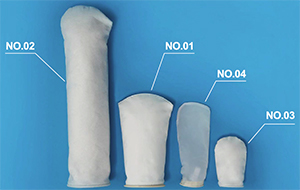
A Bag Filter System is a highly adaptable to virtually any liquid and viscosity. The liquid flows through the inside to the outside of the bag trapping the particles. Bag Filter Vessels are available in Single or Multi Bag units. Multi Bag units offer large surface area and high flow rates. The filter bags have a comparable long life and require little maintenance when sized correctly.
Monarch Bag Filter Vessels are capable of following the flow rates. The rates are based on filtering water which has a viscosity of 1 c.p through a Nominal Rated Filter Bag. When your application requires the fitting of High Efficiency media, please consult our sales staff for a sizing recommendations.
Filter Bag Sizes - Flow rates are based on using a Nominal rated filter bag.
| Size | Flow rate | Dimensions | Flow Area |
|---|---|---|---|
| 01# | 20,000 (lt per hour) @ 1 c.p. (water) | Ø178mm x 420mm | 0.24 m² |
| 02# | 40,000 (lt per hour) @ 1 c.p. (water) | Ø178mm x 810mm | 0.48 m² |
| 03# | 6,000 (lt per hour) @ 1 c.p. (water) | Ø102mm x 230mm | 0.08 m² |
| 04# | 12,000 (lt per hour) @ 1 c.p. (water) | Ø102mm x 410mm | 0.16 m² |
Flow rate capability example:
- 4 bag housing is rated at 160,000 lt per hour @ 1 c.p. nominal rated bag (4 x 02 Size bags @ 40,000 lt per hour)
- 6 bag housing is rated at 240,000 lt per hour @ 1 c.p. nominal rated bag (6 x 02 Size bags @ 40,000 lt per hour)
Filter Removal Efficiency
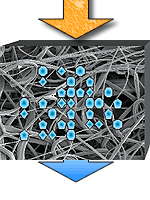
Nominal vs High Particle Removal Efficiency
Our range of filter bags can categorised into Nominal or High Efficiency Particle Removal.
Nominal Ratings
Nominal filter ratings are an arbitrary (nominal) value, indicating a particulate size range at which the filter removes some percentage. Nominal ratings vary from manufacturer to manufacturer and cannot be used to compare filters among manufacturers. Processing or application conditions such as operating pressure, concentration of contaminant and particle type have a significant effect on the retention efficiency of the nominally-rated filters.
Absolute Ratings and High Removal Efficiency
Absolute filter ratings are a value associated with a filter, that represents the size of the smallest particle completely retained. Complete retention is within the experimental uncertainty of a standard test method consistent with the intended filter use. Among the test conditions that must be specified are particle size, challenge pressure, concentration, and detection method used to identify the contaminant.
General Considerations
What is the viscosity of the product to be filtered?
Viscosity is the resistance of a fluid to the motion of its molecules among themselves. Water, ether, and alcohol have low viscosities; heavy oil, glycerine, and syrup have high viscosities. Viscosity affects resistance directly. If all other conditions remain constant, doubling the viscosity in a filter system results in twice the original resistance to flow. Consequently, as viscosity increases, the pressure required to maintain the same flow rate increases. Centipoise is the unit of measurement comparing the viscosity of a fluid with that of water, which has a viscosity of 1 c.p.
Temperature
The temperature at which filtration will occur can affect both the viscosity of the fluid, the corrosion rate of the filter or housing, and the filter medium compatibility. Viscous fluids generally become less viscous as temperature increases. If a fluid is too viscous, it may be advisable to preheat the fluid and to use a jacketed housing or an electrical heat jacket on the housing. Temperature also has an impact on the selection of filter media and the O-ring seals.
Solids Loading
For example: In an application with a low flow rate and a high solid loading it may be preferable to oversize the unit providing a greater surface area and dirt holding capacity. The increased surface area provides reduced pressure resulting in increased filter life.
Are the solids crystalline or gelatinous?
Crystalline solids can form a permeable layer on the filter media and gelatinous solids can form an impermeable layer that will cause blinding off of the filter media.
Monarch Asia Pacific Pty Ltd, © 2026 All Rights Reserved
Release: 26:1:0

